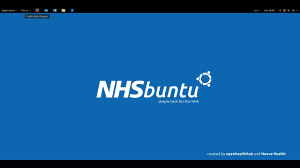cyber attacks
See the following -
9 Healthcare Tech Trends in "The New Year of Uncertainty", Black Book Survey Results
 Black Book’s year end C-suite polls reveal the brakes being pumped on advanced software acquisitions due to political and funding uncertainty that is menacing long term strategies and the willingness to purchase some IT products and services in the first half of the New Year. Policy changes in the wake of a full or partial repeal of Obamacare may create new demands on healthcare enterprises that will likely divert capital and resources toward getting ready for value based care. This uncertainty, as recognized by 9 of 10 hospital leaders surveyed, will at a best decelerate decision-making on planned or ongoing initiatives, and at worst drain IT investment dollars for a protracted period of time, according to Doug Brown, Managing Partner of Black Book...
Black Book’s year end C-suite polls reveal the brakes being pumped on advanced software acquisitions due to political and funding uncertainty that is menacing long term strategies and the willingness to purchase some IT products and services in the first half of the New Year. Policy changes in the wake of a full or partial repeal of Obamacare may create new demands on healthcare enterprises that will likely divert capital and resources toward getting ready for value based care. This uncertainty, as recognized by 9 of 10 hospital leaders surveyed, will at a best decelerate decision-making on planned or ongoing initiatives, and at worst drain IT investment dollars for a protracted period of time, according to Doug Brown, Managing Partner of Black Book...
- Login to post comments
Five Tech Trends Affecting Healthcare IT Today, and Tomorrow
 Technology is evolving faster than ever before, and shows no sign of slowing down. Digital innovation has enhanced the way we operate in almost every aspect of modern life, but in the healthcare industry, technology is not only changing lives, it's saving them too. Outlined below are five technology trends that are taking hold of the healthcare IT industry today, and what developments we can expect to see over the course of 2019 and beyond.
Technology is evolving faster than ever before, and shows no sign of slowing down. Digital innovation has enhanced the way we operate in almost every aspect of modern life, but in the healthcare industry, technology is not only changing lives, it's saving them too. Outlined below are five technology trends that are taking hold of the healthcare IT industry today, and what developments we can expect to see over the course of 2019 and beyond.
- Login to post comments
How Cyber Hardening Can Protect Patient Privacy And Treatment
 The abundance of internet-connected devices that collect and share patient data has greatly increased the “attack surface” (where an attacker inserts or extracts data) and number of possible vulnerabilities within a system. Now that medical devices can connect to home-based routers, public Wi-Fi or cellular networks to relay data to hospitals, specialists, and care providers. In addition, the software in those devices lacks cybersecurity and can be updated and reprogrammed remotely. Thus, sensitive patient information is even more prone to data breaches, and the safety of the devices can be compromised. Recent supply chain compromises, and the migration of health applications and platforms to the cloud, also add to the threat equation. This article looks at why the medical community is so vulnerable and suggests how it can better protect life-saving equipment and sensitive data from unprecedented cyberattacks.
The abundance of internet-connected devices that collect and share patient data has greatly increased the “attack surface” (where an attacker inserts or extracts data) and number of possible vulnerabilities within a system. Now that medical devices can connect to home-based routers, public Wi-Fi or cellular networks to relay data to hospitals, specialists, and care providers. In addition, the software in those devices lacks cybersecurity and can be updated and reprogrammed remotely. Thus, sensitive patient information is even more prone to data breaches, and the safety of the devices can be compromised. Recent supply chain compromises, and the migration of health applications and platforms to the cloud, also add to the threat equation. This article looks at why the medical community is so vulnerable and suggests how it can better protect life-saving equipment and sensitive data from unprecedented cyberattacks.
- Login to post comments
In God We Trust, All Others (Don't) Pay Cash
 I was intrigued by a recent Wall Street Journal article about how some retail establishments won't accept cash as a form of payment, citing Drybar, Sweetgreen, and at least one Starbucks location. Cashless is touted as faster, safer, easier to administer, and in line with most customers' preference. Indeed, a new study from the Pew Research Center found that 29% of all U.S. adults don't use cash at all in their typical week, up from 24% in 2015. The higher the household income, the less cash was used. Alistair Johnson writes in Forbes that, hey, if we're going to a cashless society, we should make it a cardless one as well, not simply replace our cash with those pieces of plastic we use for debit/credit. I think he's on to something there, and both discussions made me think about how we change the constructs of our everyday lives -- including in healthcare.
I was intrigued by a recent Wall Street Journal article about how some retail establishments won't accept cash as a form of payment, citing Drybar, Sweetgreen, and at least one Starbucks location. Cashless is touted as faster, safer, easier to administer, and in line with most customers' preference. Indeed, a new study from the Pew Research Center found that 29% of all U.S. adults don't use cash at all in their typical week, up from 24% in 2015. The higher the household income, the less cash was used. Alistair Johnson writes in Forbes that, hey, if we're going to a cashless society, we should make it a cardless one as well, not simply replace our cash with those pieces of plastic we use for debit/credit. I think he's on to something there, and both discussions made me think about how we change the constructs of our everyday lives -- including in healthcare.
- Login to post comments
NHS Urged to Consider Microsoft Alternatives Following Cyber Attacks
 In the wake of Friday’s international cyber attacks, which caused widespread disruption across NHS organisations, a small team of developers is recommending the health service reduce its reliance on Microsoft. The NHS almost exclusively uses Microsoft operating systems, some of which – like Windows XP – are no longer officially supported. To demonstrate that there is a licence-free alternative, GP Marcus Baw and technologist Rob Dyke have adapted the open source Linux-based Ubuntu operating system specifically for the NHS...
In the wake of Friday’s international cyber attacks, which caused widespread disruption across NHS organisations, a small team of developers is recommending the health service reduce its reliance on Microsoft. The NHS almost exclusively uses Microsoft operating systems, some of which – like Windows XP – are no longer officially supported. To demonstrate that there is a licence-free alternative, GP Marcus Baw and technologist Rob Dyke have adapted the open source Linux-based Ubuntu operating system specifically for the NHS...
- Login to post comments
Open Source Product Development Most Effective When Social
 Benetech started out in the 90s without even understanding the meaning of the term open source. They just "needed an easy way to interface with different voice synthesizers" to develop readers for people who are blind and "shared the code to be helpful." Sound familiar? Opensource.com started covering stories like in 2010 and they recur more often than you might think. Stories of people sharing the code to help others—but sharing code to get help developing better code. When code is open, a community has the opportunity to form around it...
Benetech started out in the 90s without even understanding the meaning of the term open source. They just "needed an easy way to interface with different voice synthesizers" to develop readers for people who are blind and "shared the code to be helpful." Sound familiar? Opensource.com started covering stories like in 2010 and they recur more often than you might think. Stories of people sharing the code to help others—but sharing code to get help developing better code. When code is open, a community has the opportunity to form around it...
- Login to post comments
The Age of Hacking Brings a Return to the Physical Key
 With all the news about Yahoo accounts being hacked and other breaches of digital security, it’s easy to wonder if there’s any real way to keep unauthorized users out of our email and social media accounts. Everyone knows not to use the same username and password combination for every account – though many people still do. But if they follow that advice, people end up with another problem: way too many passwords to remember – 27 on average, according to a recent survey. That can lead to stress about password security, and even cause people to give up secure passwords altogether. It’s an ominous feeling, and a dangerous situation...
With all the news about Yahoo accounts being hacked and other breaches of digital security, it’s easy to wonder if there’s any real way to keep unauthorized users out of our email and social media accounts. Everyone knows not to use the same username and password combination for every account – though many people still do. But if they follow that advice, people end up with another problem: way too many passwords to remember – 27 on average, according to a recent survey. That can lead to stress about password security, and even cause people to give up secure passwords altogether. It’s an ominous feeling, and a dangerous situation...
- Login to post comments
Why Hospital Data Centers Are Moving to the Cloud
 As hospital data center infrastructures age and resources shrink, IT leaders are increasingly looking to the cloud to meet their storage needs. Not only is it cheaper than investing in upgrades and replacements of existing hardware and software, but it can add a level of security, especially in disaster-prone areas. The trend has some wondering if hospitals will still have physical data centers in the future or whether they will go the way of the dinosaurs.
As hospital data center infrastructures age and resources shrink, IT leaders are increasingly looking to the cloud to meet their storage needs. Not only is it cheaper than investing in upgrades and replacements of existing hardware and software, but it can add a level of security, especially in disaster-prone areas. The trend has some wondering if hospitals will still have physical data centers in the future or whether they will go the way of the dinosaurs.
- Login to post comments
Why Implanted Medical Devices Should Have Open Source Code
 As medical implants become more common, sophisticated and versatile, understanding the code that runs them is vital. A pacemaker or insulin-releasing implant can be lifesaving, but they are also vulnerable not just to malicious attacks, but also to faulty code. For commercial reasons, companies have been reluctant to open up their code to researchers. But with lives at stake, we need to be allowed to take a peek under the hood. Over the past few years several researchers have revealed lethal vulnerabilities in the code that runs some medical implants.
As medical implants become more common, sophisticated and versatile, understanding the code that runs them is vital. A pacemaker or insulin-releasing implant can be lifesaving, but they are also vulnerable not just to malicious attacks, but also to faulty code. For commercial reasons, companies have been reluctant to open up their code to researchers. But with lives at stake, we need to be allowed to take a peek under the hood. Over the past few years several researchers have revealed lethal vulnerabilities in the code that runs some medical implants.
- Login to post comments
Your Money or Your PHI: HHS Issues New Guidance on Ransomware
 To help health care entities better understand and respond to the threat of ransomware, the HHS Office for Civil Rights has released new HIPAA guidance. One of the biggest current threats to health information privacy is the serious compromise of the integrity and availability of data caused by malicious cyber-attacks on electronic health information systems, such as through ransomware. The FBI has reported an increase in ransomware attacks and media have reported a number of ransomware attacks on hospitals...
To help health care entities better understand and respond to the threat of ransomware, the HHS Office for Civil Rights has released new HIPAA guidance. One of the biggest current threats to health information privacy is the serious compromise of the integrity and availability of data caused by malicious cyber-attacks on electronic health information systems, such as through ransomware. The FBI has reported an increase in ransomware attacks and media have reported a number of ransomware attacks on hospitals...
- Login to post comments
Cyber Resilience: Protecting Data and Immunizing Software
Two of the most innovative and impactful cyber security technologies will be featured in a one hour webinar. Cyber Reliant uses a unique shredding technology to protect data at rest, in transit, and in use. RunSafe Security transforms (or "stirs") existing software binaries on devices and in embedded systems to cyber harden them against memory corruption, supply chain, and zero-day attacks. Both of these technologies function under the assumption of breach. Don't miss this opportunity to hear about these two game-changing cyber technologies and ask the presenters your questions.
- Login to post comments